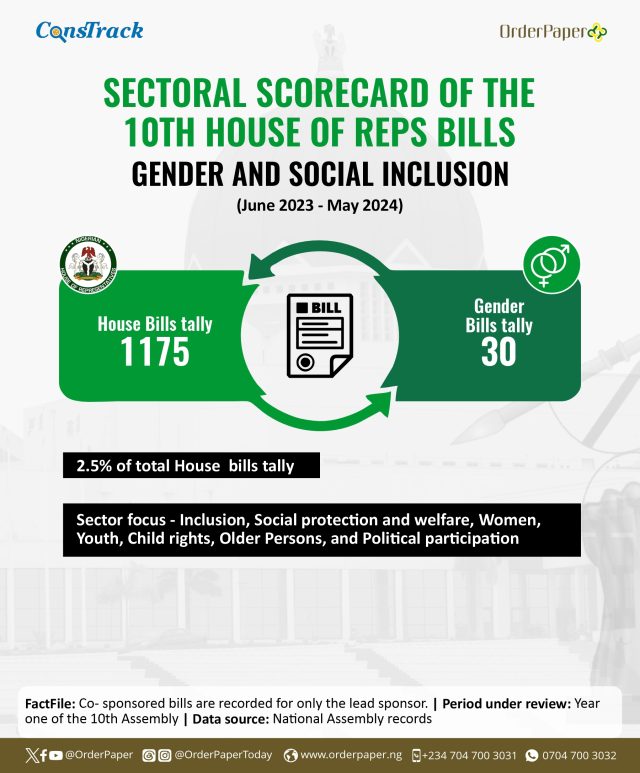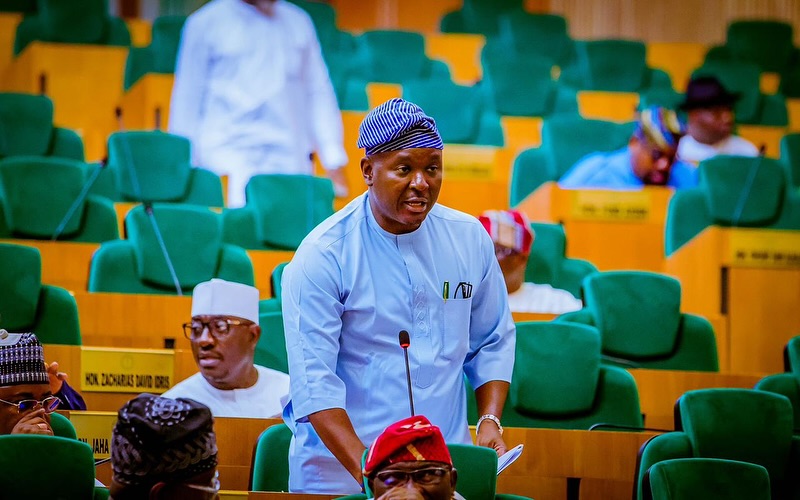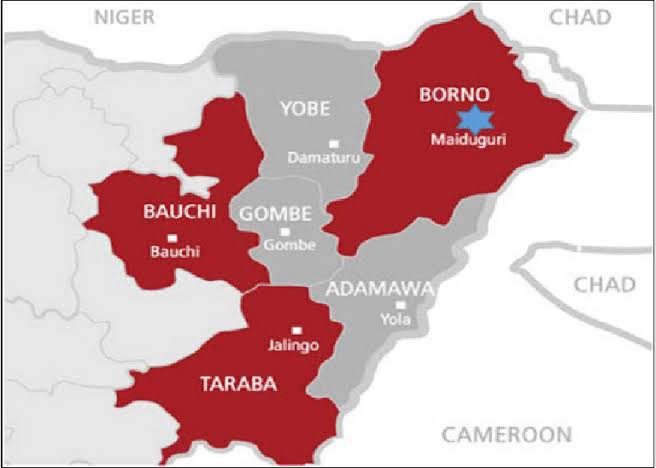In its inaugural year, the 10th House reviewed a noteworthy total of 1,175 bills, of which gender bills constituted only 2.5 percent.

Gender inequality and social exclusion continue to pose significant challenges in Nigeria, impacting various facets of society, including economic participation, education, and health. Despite some progress, entrenched cultural norms and systemic barriers persist, marginalizing women, girls, and other vulnerable groups.
In the just concluded year, the House of Representatives proposed 30 bills aimed at addressing gender marginality, focusing on inclusion, social protection, welfare, women’s rights, youth empowerment, child rights, support for older persons, and enhancing political participation.
According to the 2024 Global Gender Gap Index, Nigeria ranks 125th out of 146 countries with an overall gender parity score of 65%. This score highlights substantial gaps in economic participation, educational attainment, health outcomes, and political empowerment.
READ ALSO: 10TH NASS REPORT CARD: 15 gender bills introduced amid inequality in senate
Women remain underrepresented in various sectors: currently, only 16 out of 360 lawmakers in the 10th House of Representatives are women.
Social exclusion also affects other groups, including people with disabilities, ethnic and religious minorities, and internally displaced persons. These groups often face multiple forms of discrimination that hinder their participation in social, economic, and political life.
To foster a more inclusive society, Nigeria must prioritize gender equality and social inclusion through effective policy implementation and community engagement. Addressing these issues is crucial not only for the well-being of marginalized groups but also for the overall development and economic growth of the nation.
READ ALSO: 10TH NASS REPORT CARD: Female rep sponsors most bills among Imo lawmakers
10th NASS Report Card: Read up on the performance of other senators and members of house and other specialized categories here



